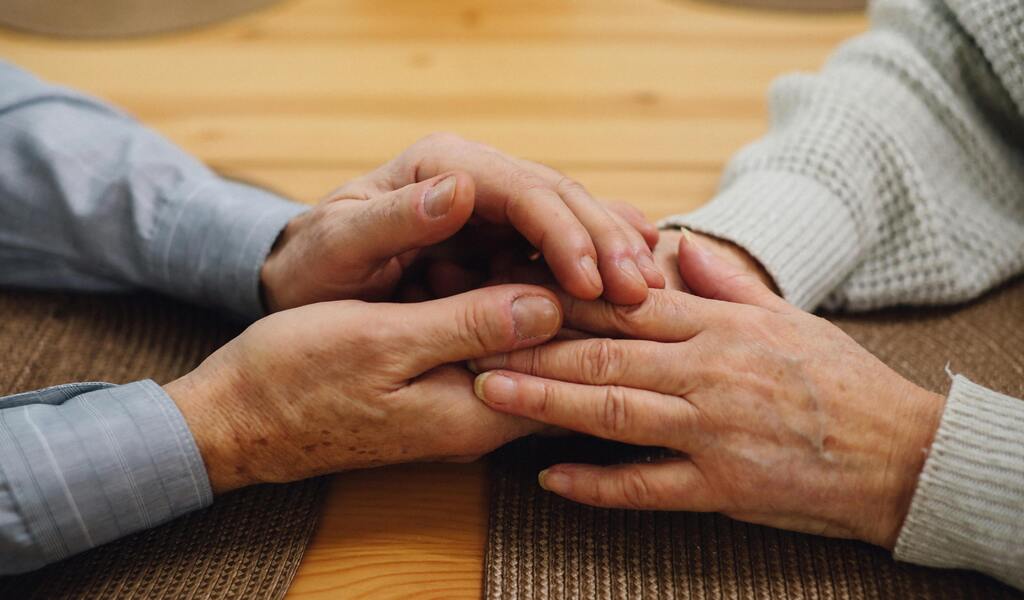How to Help Your Parent Cope with the Loss of Their Parent

Losing a parent is one of the most difficult experiences anyone can go through. Unfortunately, it is also something most people will face in their lifetime—including your own mom and dad.
Seeing your parent lose their parent can be incredibly challenging. But no matter how hard this time is for the both of you, there are ways that you can help support your mom or dad as they navigate grief and this new normal.
1. Offer to Help with Arrangements
In the immediate aftermath of the loss of their parent, your parent may feel overwhelmed with the practicalities of making funeral or memorial arrangements. Offer to help with tasks such as contacting the funeral home, arranging transportation, or coordinating with other family members. Taking on some of these responsibilities can provide much-needed relief for your mom or dad as they start to grieve.
2. Listen to Their Stories
Encourage your parent to share stories and memories of their own mom or dad. Listening attentively can provide comfort and validation for their feelings and can help them to focus on happy moments even during grief. Plus, your willingness to hear their stories can help them feel supported in their mourning.
3. Share Your Favorite Memories
We all have our favorite memories from growing up with our grandparents. Consider sharing yours with your mom or dad. Reminiscing about positive experiences can be a source of comfort and can help your parent feel connected to their own parent's legacy. Talking about these moments can also create a sense of togetherness and understanding between the two of you.
4. Help Out Around Home
Offering to take care of household chores, prepare meals, or run errands can alleviate some of the daily burdens that may be causing your parent additional stress. Small gestures like these may not seem like much, but they can make a big difference in your mom or dad’s daily life as they navigate their grief.
5. Encourage Self-Care
During grief, one of the first things people will neglect is their own well-being. Encourage your parent to take care of themselves by getting enough rest, eating well, and seeking emotional support. Offer to accompany them on walks or outings to provide a change of scenery and some fresh air, which can be beneficial for both their mental and physical health.
6. Provide Resources for Support
There are countless resources available to help support individuals coping with loss, including grief counseling, support groups, and online communities. Research local grief support services and share this information with your parent, emphasizing that seeking professional help is a sign of strength, not weakness. Encouraging them to connect with others who have experienced similar losses can be incredibly beneficial and aid them in starting their journey toward healing.
7. Celebrate Special Occasions
As time passes, special occasions such as birthdays, holidays, and anniversaries may become particularly challenging for your parent. Acknowledge these milestones and consider planning activities, gatherings, or new traditions that honor their late mom or dad. Commemorating these occasions can provide a sense of continuity and ongoing comfort.
8. Respect Their Individual Needs
Some grieving individuals may find solace in socializing and being surrounded by Loved Ones, while others may prefer solitude and reflection. Respect your parent's individual needs and boundaries as they navigate their loss. Only they know what is best for them and what will bring them peace. Pay attention to their cues and respond accordingly, always prioritizing their wants and well-being.
9. Be Patient
Grieving is a highly individual process, and it's essential to be patient with your parent as they navigate their own unique journey of mourning. Everyone grieves differently, and your parent may experience a range of emotions, including sadness, anger, guilt, or even moments of peace. Allow them the space to feel and express their emotions without judgment.
10. Continue to Check In
Grieving is a process that unfolds over time, and the immediate period following the loss is just the beginning. It's important to continue checking in on your parent in the weeks and months that follow. Regular calls, visits, or messages can provide ongoing emotional support and reassurance that they are not alone in their grief.
The support you give to your grieving parent to help them cope with the death of their mom or dad can be incredibly meaningful and strengthen your own bond together. At the end of the day, your simple presence and compassion can make a significant difference as they navigate this loss, helping them to find peace and healing.
Thank you for all you do to care for the people in your life.
More Resources Like This
Remembrance Jewelry for the Loss of a Mother

